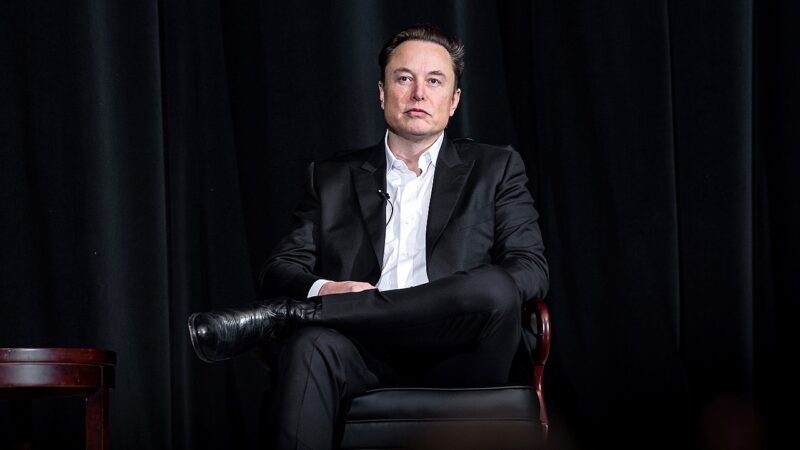Elon Musk and Matt Taibbi Reveal Why Twitter Censored the Hunter Biden Laptop Story
The Twitter Files are interesting but contain few true surprises. A mix of incompetence and partisanship got the site in trouble.

On Friday, Elon Musk announced that he would release the Twitter Files: a behind-the-scenes account of why the social media site prevented users from sharing the New York Post's infamous Hunter Biden laptop story. That story, which was erroneously categorized by national intelligence experts as disinformation of dubious and possibly Russian origin, has become the archetypical example of social media moderation gone awry.
Musk gave the scoop to the independent journalist Matt Taibbi, whose report was published on Twitter itself (in a somewhat confusingly ordered thread).
1. Thread: THE TWITTER FILES
— Matt Taibbi (@mtaibbi) December 2, 2022
The thread contains fascinating screenshots of conversations between various content moderators and company executives as the laptop story debacle was unfolding. But given how massively Musk hyped the revelations, the results are a tad disappointing, and mostly confirm what the public already assumed: A (still unidentified) employee or process flagged the story as "unsafe" and suppressed its spread, and then Twitter moderators devised a retroactive justification—violation of a "hacked materials" policy—for having taken such an extraordinary step. Then-CEO Jack Dorsey was largely absent from these conversations; Vijaya Gadde, Twitter's former head of trust and safety played "a key role." None of this material is groundbreaking; it's already well-known.
To be clear, it's useful to see some of these internal messages. They confirm that Twitter's various departments—communications, moderation, senior management—horrendously mismanaged the entire affair. They were not all on the same page: Vice President of Global Communications Brandon Borrman, for example, was immediately unconvinced by the "hacked materials" justification.
27. Former VP of Global Comms Brandon Borrman asks, "Can we truthfully claim that this is part of the policy?" pic.twitter.com/Rh5HL8prOZ
— Matt Taibbi (@mtaibbi) December 3, 2022
Another employee, Deputy General Counsel Jim Baker, essentially felt that erring on the safe side meant suppressing the story until evidence emerged that it wasn't hacked. This turned out to be an extremely bad judgment. But again, the informed public already knew that the mess had been made by some combination of incompetence and employees' anti-Republican biases.
The most interesting revelation in Taibbi's thread is that Twitter's top executives were warned, over and over again, that this decision was going to create a backlash like nothing they had ever seen before. Rep. Ro Khanna (D–Calif.), a progressive lawmaker, repeatedly emailed a Twitter communications staffer to complain that the firm was violating "1st Amendment principles." (He raised some very valid points in his communications with the company, though strictly speaking the First Amendment does not apply in this situation.) NetChoice, a tech industry trade association, explicitly told Twitter that this would be the company's "Access Hollywood moment." (Unlike Twitter, both Khanna and NetChoice come off looking pretty good in all this.)
Taibbi is a good journalist, and should be commended for adding to the public's understanding of what went wrong here. Progressive figures currently slamming him for having participated in Musk's reveal are behaving horribly. There's nothing "disgraceful" whatsoever about Taibbi's reporting.
And kudos to Musk for attempting to shed more light on what truly was a low moment for the culture of free speech on the platform. But we're essentially in the-butler-did-it territory: The mystery's explanation is exactly what everyone expected, and largely already knew.


Show Comments (527)